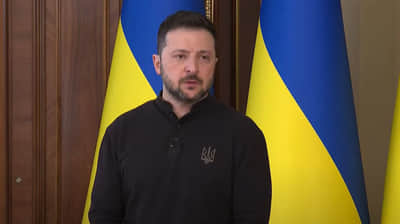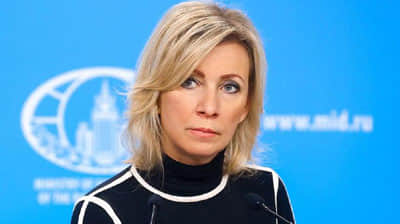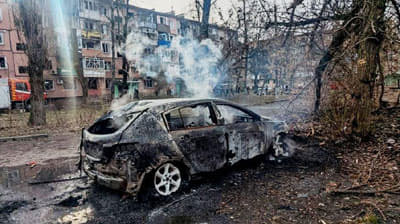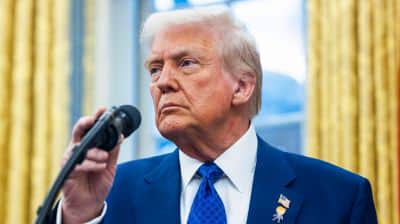WP: Russia grows increasingly confident in undermining West as support for Putin surges
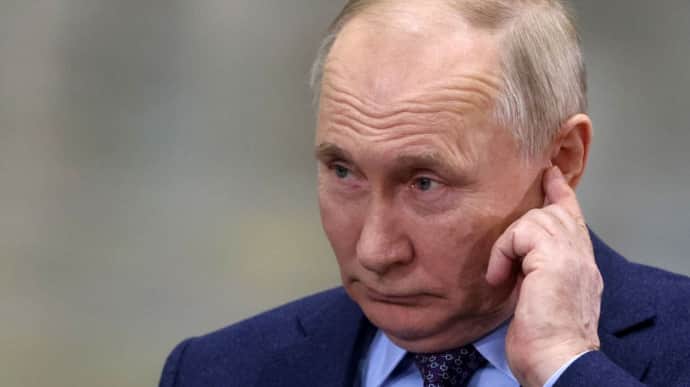
The confidence in "undermining the West" is strengthening in Russia due to the failure of the Ukrainian counteroffensive and alliances with China and countries of the Global South. Simultaneously, support for dictator Vladimir Putin is growing among Russian elites ahead of the upcoming elections.
Source: The Washington Post, citing Kremlin documents and interviews with Russian officials and business leaders
Details: The publication writes that Russia is increasingly confident that deepening economic and diplomatic ties with China and countries of the Global South will enable it to challenge the international financial system dominated by the United States and "undermine the West."
Quote: "Russia has been buoyed by its success in holding off a Western-backed Ukrainian counteroffensive followed by political stalemates in Washington and Brussels over continued funding for Kyiv.
In Moscow’s view, the US backing of Israel’s invasion of Gaza has damaged Washington’s standing in many parts of the world. The confluence of events has led to a surge of optimism about Russia’s global position."
More details: Officials in Moscow point to the growing trade volumes with China, military cooperation with Iran, diplomatic activities in the Arab world, and the expansion of the BRICS organisation, which unites the largest developing economies.
Internal documents from the Russian Security Council, obtained by European intelligence services and analysed by The Washington Post, reveal that in 2022 and 2023, the Kremlin convened meetings to discuss ways to undermine the dollar's role as the world's reserve currency. The ultimate goal, as one of the documents indicates, was the dismantling of the global financial system established after the Second World War and the power it granted to Washington.
"One of the most important tasks is to create a new world order. Western countries led by the United States have tried to impose their own structure, based on their dominance," one of the documents dated 3 April 2023 states.
Another document, written by a close ally of Security Council chief Nikolai Patrushev and circulated in the Kremlin this summer, called for closer cooperation between China and Russia in artificial intelligence, cyber systems, and the "internet of things." The document reads that it was envisaged that Beijing and Moscow would establish a new financial system and a Eurasian digital currency based on alternative payment systems such as blockchain. The goal was to circumvent the dominance of the West in global financial operations.
Kremlin spokesperson Dmitry Peskov, in a comment to The Post, denied that Russia is working to undermine US dominance in the global financial system. However, he acknowledged that Russia seeks alternatives, stating that the actions of the "collective West" undermine trust without any assistance from Moscow.
Peskov said that the Kremlin "is following [the situation] carefully and building a new system of economic neurons because the previous system turned out to be unreliable, false and dangerous."
At the same time, the belief that Russia has proven to be more resilient militarily and economically than the West anticipated has strengthened Putin's position within the country on the eve of the presidential elections in March. This is particularly true among certain representatives of the Russian elite who had long been sceptical of the war in Ukraine and were initially concerned about the impact of Western sanctions, as the publication reports.
"There has been a certain consolidation in the Russian elite. There is a certain expectation that the situation will further change in Russia’s favour," said a Russian academic with close ties to the country’s senior diplomats.
The publication cites the words of Russian billionaire Oleg Deripaska, who initially publicly opposed the war in Ukraine but now considers the rupture between Russia and the West as a catalyst for changing global economic models. He said that "in a few years, sanctions will no longer be a brake on global trade and investment."
European security officials say that Moscow is the junior partner to Beijing, and it remains unclear whether China has a genuine interest in aligning with the grand plans of the Kremlin. However, Russia is increasingly focused on leveraging its global position to undermine the West, particularly in the Middle East.
A high-ranking European official, speaking anonymously, stated that Russia is "not omnipotent, but they try to use all possibilities. They are very consistent and systematic."
A high-ranking European security official said that while the majority of the West still hopes for a return to the previous order, Russian billionaires "have understood that the old life is finished and now is the time to create a new future." He said Russians "have passed through the Rubicon, and the West has not. The West wants to return to business as usual. But the Russians understood that this is impossible, and they are trying to build a new world."
A Russian official told the publication that "through Iran, it is possible [for Moscow] to make this [Middle East] situation so acute that attention can be further distracted from Ukraine." "Russia still has a big negative potential," he said. "There are a lot of hot spots that Russia can interfere in."
Matthew Redhead, former head of Global Strategic Intelligence at HSBC and currently a senior associate fellow at the Royal United Services Institute, a British think tank, believes that deep divisions in Washington, including disagreements on continued funding for Ukraine, have reinforced the conviction in Moscow and other countries that the United States is paralysed.
"It means that hostile states like Russia and Iran and potentially China are going to start pushing the boundaries further to see what reaction they will get. It is an invitation to escalate," Redhead said.
Mikhail Khodorkovsky, the exiled Russian business executive, believes that the West is at a turning point. How it responds to the increasing global disorder and Russian aggression may determine the number of conflicts it will face in the coming decades.
Khodorkovsky said that after Russia crossed the red lines in Syria, and the US withdrew troops from Afghanistan, and only managed to provide fragmented support for Ukraine, "it looks from the outside like the US is losing the Third World War."
Gen. Richard Barrons, former commander of the British military’s Joint Forces Command, has stated that the risks of a strategic defeat for the West are increasing due to a lack of political will to provide Ukraine with sufficient arms and to deploy military-industrial production.
"In terms of latent military power and economic strength, it is absolutely ridiculous that the West is being held hostage by something as relatively puny as Russia. Putin believes that if he is stubborn enough for long enough, we, the feeble West, will walk away – and he could be right. … That won’t just be shameful. That will be an act of strategic self-harm," Barrons said.
Support UP or become our patron!

